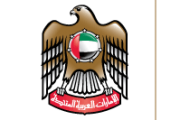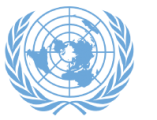Thank you, Mr. President, for chairing this important debate. I would also like to thank Secretary-General Ban and High-Commissioner Zeid for their remarks and for their efforts to promote and protect human rights—which is at the heart of this issue.
Today the international community has come together in the Security Council to discuss the situation of persecuted religious and ethnic minorities in the Middle East. In doing so we are also sending a message to all citizens of the world that we stand by their inalienable human rights—whatever their religion or ethnicity, and wherever they may be. But we must also recognize that today in our region these terrible acts are perpetrated by the cynical exploitation of religious and ethnic differences by extremists – to further their brutal and violent aims. This is not a new, nor a regional phenomenon – extremists throughout history and across the world have manipulated differences to achieve their agendas.
As many of today’s speakers have affirmed, the current crisis is not representative of the region’s history. Yet, a generation of children are growing up in a world where there is a wide perception that discord is the natural state of being in the Middle East.
They do not know or believe that the region was once a vast interwoven mosaic of communities—characterized by different faiths, tribes and ethnicities living in harmony side-by-side.
And I fear that as civil wars rage and violent extremism persists in the Middle East, an even darker perception will prevail that our region is hopelessly divided, and that Islam is an inherently intolerant religion.
This is simply not true. Islam recognizes and honours the great faiths that preceded it. Throughout our history, religious minorities have been protected in Muslim communities from those who sought to harm them because of their beliefs. The same broad tolerance that gave refuge to the Jews who were expelled—with Muslims—from their homes in parts of Europe in the fifteenth century also protected the adherents of other religions: not only people of the Jewish and the Christian faiths, but also Yezidis, Samaritans, Mandeans and Druze.
In historic Alexandria and Damascus– the great cosmopolitan capitals of the region – all could freely practice their faith and govern their own communities, coexisting peacefully alongside Islam.
This peaceful coexistence was perhaps best exemplified in the holy city of Jerusalem at the apex of its history. And, while Jerusalem has often been the focus of stories of division and conflict among people of different religions, all are united in their reverence for this holy ground. That is why the UN General Assembly last year passed a resolution that reiterated that the international community has "a legitimate interest in the question of the City of Jerusalem and in the protection of the unique spiritual, religious and cultural dimensions of the city”.
The great civilizations, religions, and peoples of the world are part of Jerusalem’s rich history and it cannot be allowed to turn into the next theatre of conflict. Jerusalem is a symbol not only of our shared history of spiritual coexistence—but also a shining beacon of hope that peace and tolerance can be achieved in the holy land once again.
It is against this rich tide of history that Daesh has emerged today to commit unspeakable atrocities against defenceless people in Iraq, Libya and Syria.
Their ambitions extend even further beyond the boundaries of these countries, threatening to engulf the entire region in their totalitarian and Takfiri worldview, as was so eloquently described by the High Commissioner this morning. Their behaviour—brutal persecution and systematic attempts to erase any trace of cultural diversity—in the name of Islam is the antithesis to our region’s proud past.
Attempts by Daesh to justify murder and mayhem through the language of our religion should be seen for what they are: the desperate lies of a demented few. As long as Daesh continues to survive, all communities are under threat— violent extremism knows no boundaries.
Yet, the rich cultural tapestry of the Middle East that we hold dear does not have to be relegated to antiquity. It is possible today. I know this because it exists in the United Arab Emirates. More than 200 different nationalities live and work and worship their own faiths freely in the UAE.
And, while our infrastructure is modern, the values of tolerance, moderation and unity that are the foundation for our country’s multi-ethnic, multi-religious diversity are ancient.
Fostering such a model requires a conception of state building that is underpinned by educational opportunity, economic development and respect for human rights, the rule of law and the prominent role of women as partners in this endeavour.
In the UAE, we have also found that visionary leadership and strong institutions are the pillars of stability – it is vital to sustain these pillars in the many countries undergoing transition in our region.
Our lives and faiths have always been and will always remain interconnected in our region. And that is why we cannot isolate ourselves from injustice when it occurs around us. In Egypt—whose stability the UAE believes to be the cornerstone of stability for entire region, as well as Iraq, Syria, Libya and Yemen—our long history of harmony is threatened by the actions of extremists.
Underlying the shifting landscape in the Arab scene, the ongoing injustice of the Palestinian question fuels the narrative of Daesh’s recruitment efforts both in our region and globally. An end to this tragic conflict must be achieved, and we commend France's leading diplomatic efforts to secure a meaningful resolution of this tragic injustice.
In our region, but elsewhere too, it is vital to shore up the economic, social, legal and institutional infrastructures of states. These provide the framework of critical protections for people when societies break down, and deliver the means to prevent and stop violence and disorder – even when leadership fails.
That must be our focus as we shape the broad ambitions of the post-2015 development agenda.
In this context, the UAE would like to offer some recommendations for addressing the problem:
First, the Security Council must consistently condemn the systematic persecution of minorities wherever these take place. And in finding solutions, we must respect the Charter of the United Nations, the paramount document of common principles we have as an international community. Member States must have the courage to do what is right, and not only what is politically convenient – the United Nations can only fulfil its mandate if it is empowered to do so by its membership.
Second, it is imperative to consult and listen closely to the states of the affected region itself—we understand the issues and the context, and we will bear the consequences in the long term.
Third, the impunity of the perpetrators must be addressed through the formation of resolute international coalitions. Secure and stable societies are the cornerstone of good governance, and we must help our region to stabilize during this turbulent period.
Fourth, governments must be encouraged to extend their protections to all their citizens and uphold their freedoms.
Fifth, strong institutions and mechanisms that protect human rights and provide early warning to prevent and respond to violations must be built and maintained.
The responsibility for implementing these recommendations nationally and supporting them internationally lies with all of us—if we wish to continue to model the human values of tolerance, moderation and diversity that began with our forebears.
Let me end by congratulating France on the successful stewardship of the Security Council during your Presidency across a broad range of issues that are fundamental to international peace and security.
Thank you.


